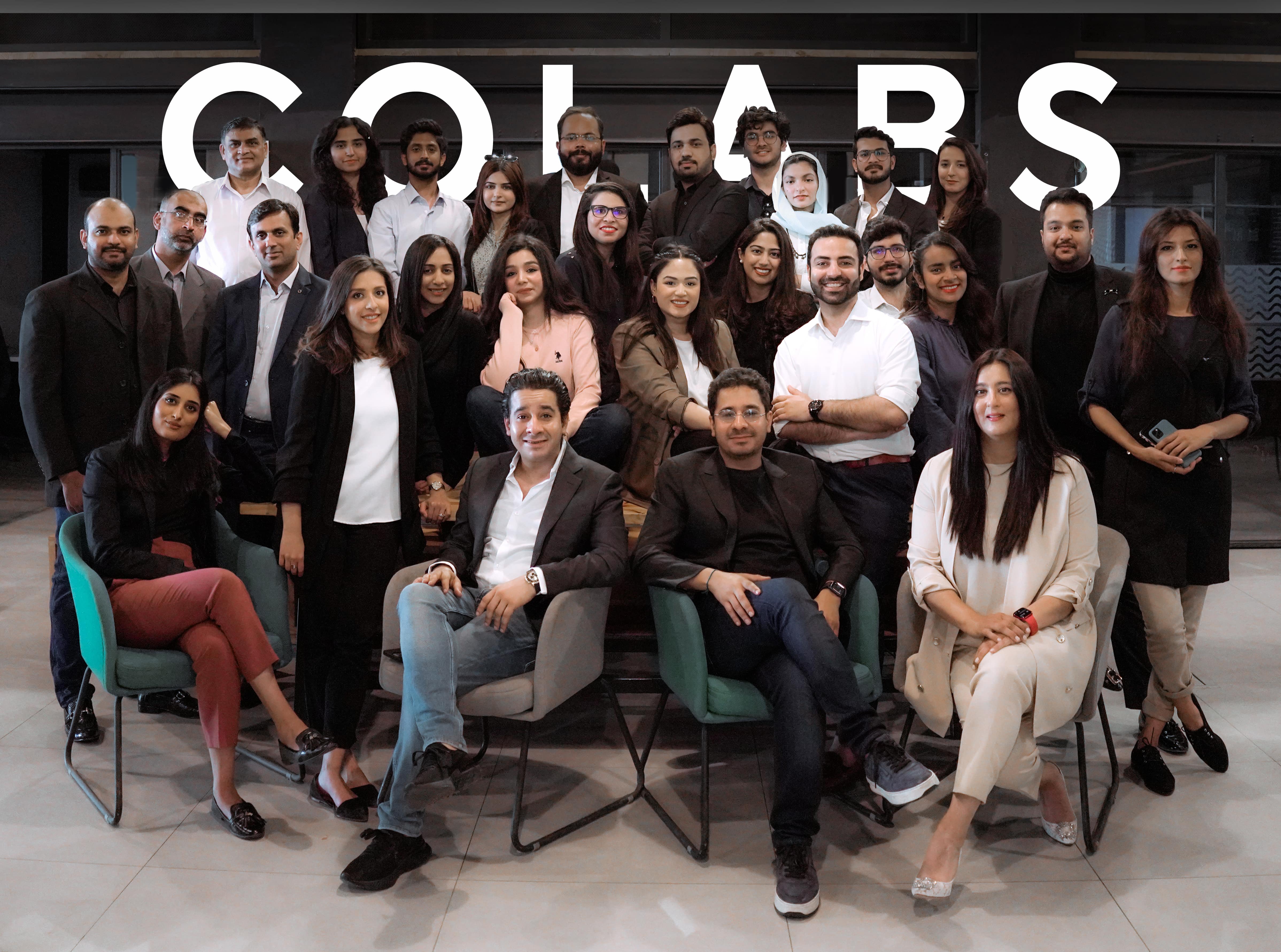[ad_1]
Lahore-based coworking space startup, Colabs, is set to roll-out a SaaS product to enable businesses meet back-office needs including company registration, talent sourcing and management, payroll processing and legal and tax compliance. It also plans to hire more staff, which will include increasing the product team for its SaaS workspace business service that is emerging from the beta phase.
The new plans come after the startup secured $3 million in seed funding in a round led by Indus Valley Capital, Zayn Capital and Fatima Gobi Ventures, the first time that the three Pakistan-focused VCs are investing in a startup together.
Colabs co-founder and CEO Omar Shah, a former investment banker, told TechCrunch, ‘We realized that people setting up operations in Pakistan need other services; they need help to set up companies, process payrolls and to ensure tax compliance. That is why we introduced our business solutions.”
“Our plan is to get to 600 paying customers in the next 12 months, and from there we will roll this product out to the market,” said Shah.
Mr Shah and his twin brother Ali Shah co-founded Colabs as a co-working outfit for entrepreneurs launching businesses and multinationals setting hubs in Pakistan. This was in 2019 and they were inspired by the flourishing startup ecosystem and advancing technology space in the country.
Prior to launching Colabs, Mr Shah worked in the private equity sector for about eight years, with his last assignment at Abraaj Capital, before he collaborated with his brother, who operates long established family-run real estate and development firm SABCON, to launch the startup. The family-owned real estate firm develops Colabs spaces.
Planned national expansion
The startup hosts over 100 companies with a combined 1,200 people across its three locations in Lahore. It plans to open 100,000 seats across the country over the next five years in a nationwide expansion to major cities, including Islamabad and Karachi.

Colabs wants to be the gateway to Pakistan for tech companies and a launch pad for startups. Image Credits: Colabs
“The idea for Colabs is to create spaces across the country, where we can service freelancers, startups, SMEs, and large enterprises. It is a community for anyone who wants to start up their career or a company or wants to enter the country. Colabs will support them in their journey. We want to become that gateway into Pakistan,” said Shah.
“Our growth plan is very ambitious. But we see a demand for what we are offering because by the time we open our new spaces, they are already sold-out. And this is because there are so many companies that are entering the country. And so many startups here that are raising capital and want to be inside spaces like ours, as opposed to investing in their own campus,” he said.
The rise of flexible workplaces has also grown post-Covid as more companies reduce the overheads associated with operating exclusive physical locations. These co-working spaces like Colabs, also host events, which are important for networking, learning or meeting potential investors or clients.
According to Shah, the rising interest in Pakistan by major investors like Tiger Global means that the growth of the country’s startup ecosystem is set to continue, increasing the demand for spaces like Colabs. Investments into Pakistan rose more than five times last year to $350 million from $65 million in 2021 at the backdrop of a fintech and e-commerce boom.
Colabs’ new funding brings the total amount raised by the startup to $4 million, including capital from an unannounced pre-seed round.
Aatif Awan, founder and managing partner of Indus Valley Capital said, “We’re thrilled to partner with the Colabs team to help them build the leading platform and community that will power the growth of Pakistani tech across startups, freelancers and global companies expanding into Pakistan.”
The seed round was joined by Shorooq Partners, Kinnow Capital, Muir Capital, Sai Ventures, and some key angels, including Turner Novak, William Hockey, and Teddy Himler.
Zayn Capital co-founder and managing partner Faisal Aftab said, “I have closely watched Colabs grow into one of the key players in Pakistan’s startup ecosystem. We were fortunate enough to have met some of the startups we invested in, in their spaces.”
[ad_2]
Source link
